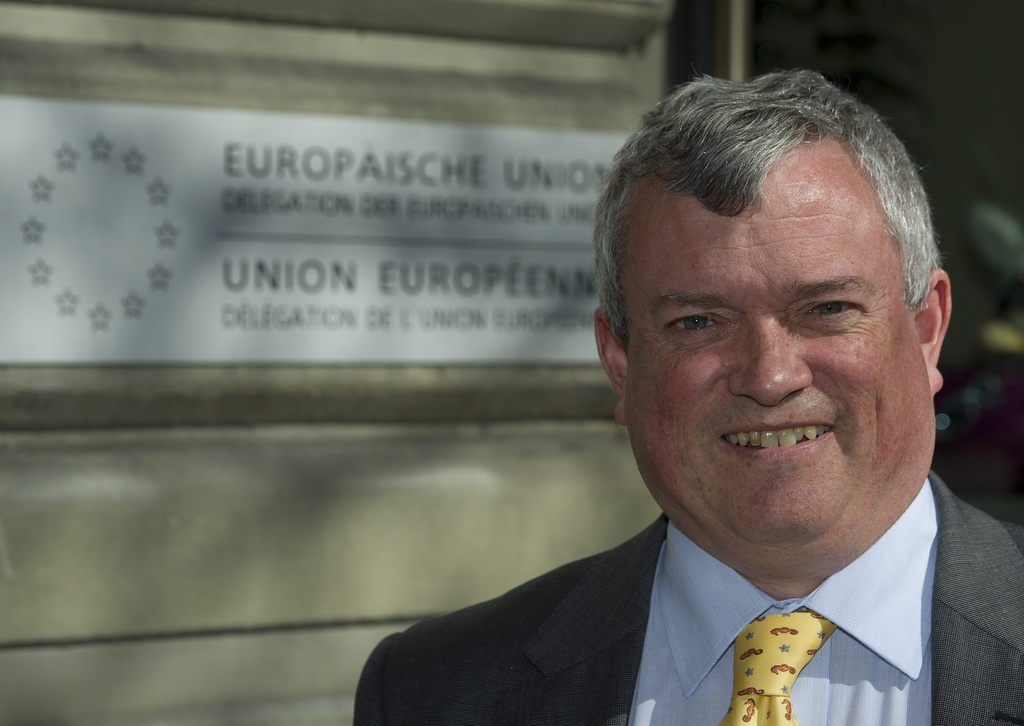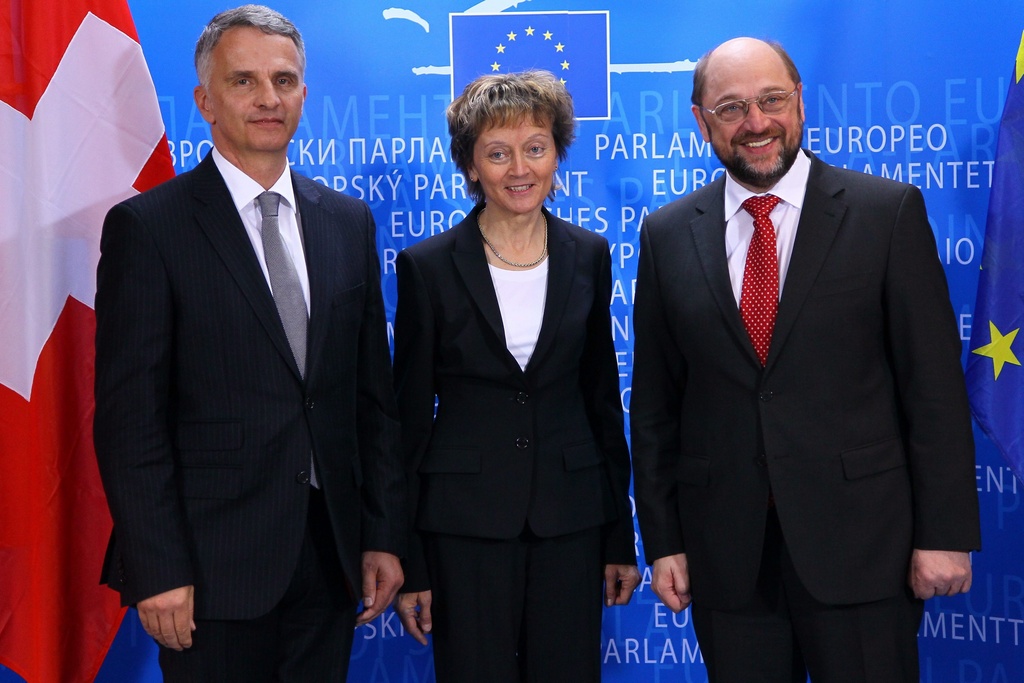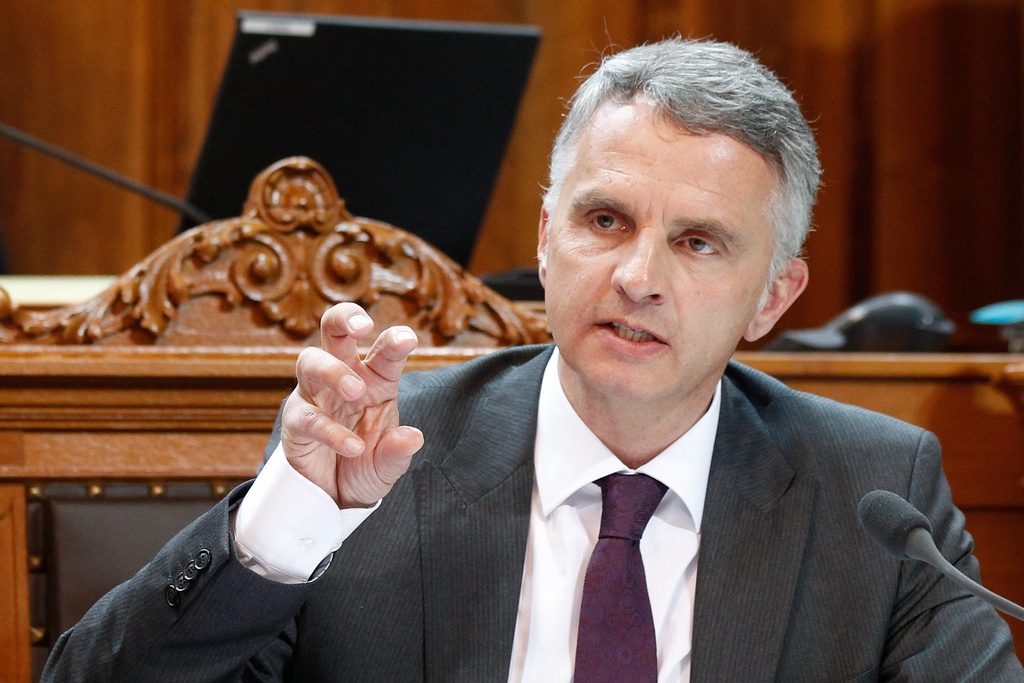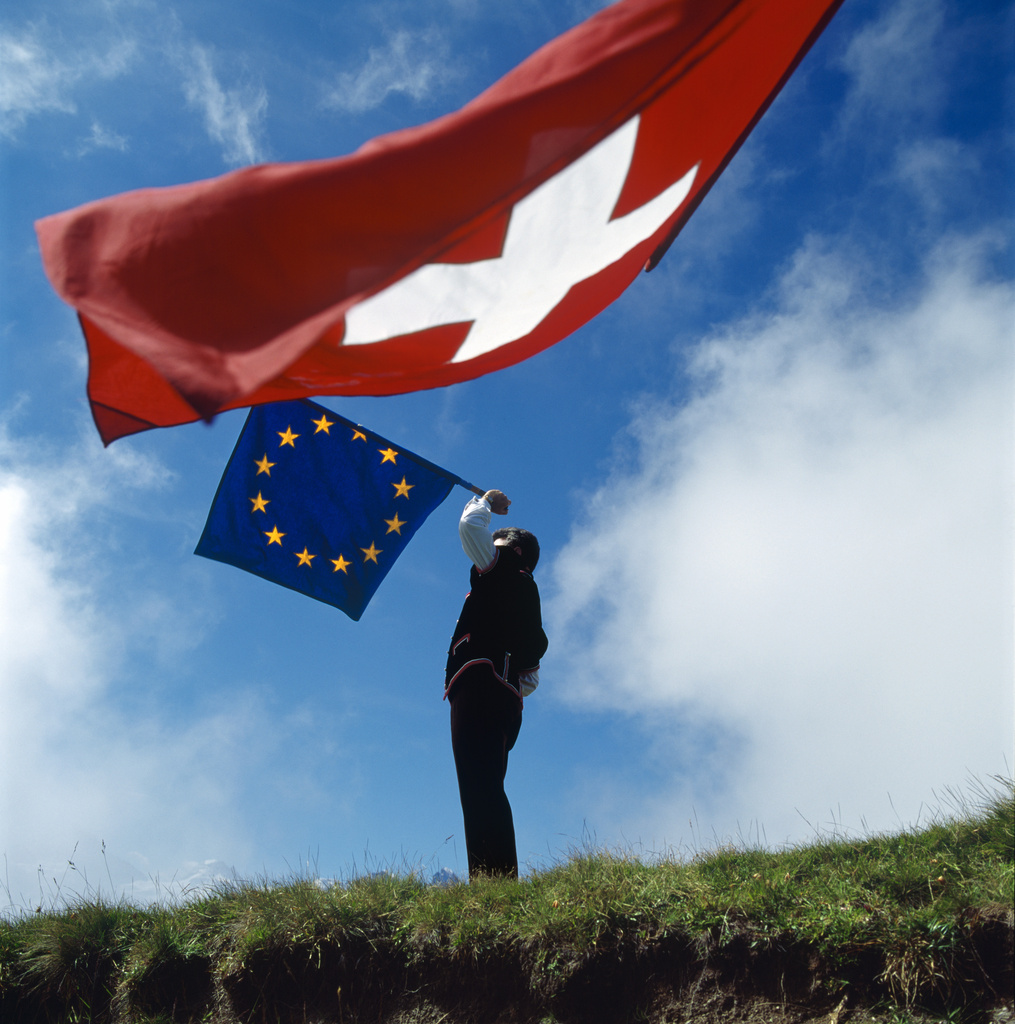EU ambassador pushes hard line

Richard Jones, the Welshman who took up the post of European Union ambassador to Switzerland in January, has repeated Brussels’ hard line on future trade deals.
His first press briefing with Swiss media in Bern on Friday revealed a career diplomat adept at smoothing ruffled feathers while refusing to give an inch.
Perhaps it was calculated to, given the briefing came in the same week that Swiss President Eveline Widmer-Schlumpf and Foreign Minister Didier Burkhalter returned from high-level meetings in Brussels empty-handed.
Declaring himself “delighted” with his appointment to Bern, Jones opened his comments by lavishing praise on Switzerland, an “amazingly beautiful country” with a “comfortable, civilised society”.
“Sometimes I have to pinch myself that I am here,” Jones said, before outlining the importance of the Swiss-EU relationship, which he described as a close personal friendship in which the “friends are honest with each other”.
Jones noted that Switzerland was the EU’s third-largest economic partner after the United States and China. He described Switzerland as a constructive partner on global issues such as promotion of peace and democracy and said the EU and Switzerland shared fundamental political values which, together, they were able to transmit to the world.
It was a neat segue into the tough issues from which Jones did not back away. He said bilateral accords agreed between Switzerland and the EU in the past were a “privileged approach” from which Switzerland had benefited.
Bilateral out
Describing the term “bilateral” as misleading, Jones said a more appropriate term for the agreements on single market access Switzerland had negotiated with the EU over the past two decades was “sectoral”.
“Agreement was reached on certain sectors that were beneficial to Switzerland,” he said.
“We believe that this approach has now reached its limits because it presents too great a risk for the homogeneity of the single market. The single market must have a level playing field and that is the view of all member states and EU institutions and we have said it for some time now.”
Jones said the EU wanted to find a global solution to govern agreements on single access with Switzerland based on fundamental principles for the EU, which include dynamic transposition of EU law, its uniform application, surveillance and dispute settlement.
“These principles are not bargaining chips for negotiations. All others with access to the single market have had to agree to these rules,” he said.
Asked if it was fair to change the rules after two decades in which bilateral accords had been accepted by the EU, Jones said: “I would say that we changed the rules when we gave Switzerland the sectoral approach which offered benefits for them at the time. We are now suggesting a more classic approach to avert the increasing risk of legal uncertainty.”
Impasse
In Brussels on Tuesday, Widmer-Schlumpf offered to put forward proposals in the coming weeks on finding a way through the impasse that would be acceptable to both Switzerland and the EU.
EU Commission president José Manuel Barroso is understood to have told Widmer-Schlumpf and Burkhalter that a single model for all future agreements was necessary and must include provisions for taking on any developments in European legislation.
Switzerland has been resisting on this front, with significant political elements in the country worried that committing in advance to future legal developments amounts to ceding sovereignty.
Jones rejected the suggestion that the EU had issued an ultimatum to Switzerland.
Encouraging
Jones said Barroso had called for a “clear signal” from the Swiss before agreements on access to further sectors of the single market could be concluded. He said he was encouraged by the Swiss commitment to put forward proposals on ways to move forward. The ball was now in the Swiss court.
“We’re open, we’ve made an offer. We want to focus on the positive – it might take some time, but we will not be rushing into anything that is unsatisfactory,” he said.
Referring to the hard-sell Widmer-Schlumpf and Burkhalter will have on their hands in Switzerland if they agree to an all-encompassing deal, Jones said it was up to them how they present any deal or proposals for domestic consumption.
“It’s very important that Swiss public opinion is informed. Our job is to set out the facts about the EU. It’s not our job to tell Switzerland what decisions it should take,” he said.
Richard Jones was born in 1962. Prior to taking up the position as Ambassador of the European Union to Switzerland and the Principality of Liechtenstein, he was deputy head of mission of the British Permanent Representation to the European Union.
He has held positions as the British consul-general in Basra, Iraq, and British Ambassador to Albania, as well as several positions in London with the Foreign Office, which he joined in 1983.
The Swiss government decided in 1992 to apply for negotiations on EU membership. The application is currently shelved.
The government’s 2006 report on European integration stated that the Swiss policy is based on bilateral treaties.
In August 2010 the government published a report on the country’s European integration policy, which declared that bilateral accords were still the best way to work with the EU, despite increasing difficulties.
It has concluded 20 major bilateral agreements with the bloc. There are also about 100 secondary bilateral accords between Bern and Brussels.
Bilateral treaty package I (1999)
Focused on opening up markets, the free movement of persons, technical barriers to trade, public markets, agriculture, air, road and rail transport and Swiss participation in EU research programmes.
Bilateral treaty package II (2004)
Covered new economic interests and extended to cooperation and political questions (internal security, asylum, environment and culture), the Schengen/Dublin Accords, savings tax, processed agricultural products, media, environment, statistics, fraud, pensions, education and professional training.
Negotiations are underway to update existing accords (the free movement of persons, technical barriers to trade, public markets, air transport, processed agricultural products). There are plans to adapt the accords on savings tax and fraud.
New talks were launched in 2007 for electricity, agriculture, health, consumer protection issues, food chain and product safety, chemical product safety and company taxation.

In compliance with the JTI standards
More: SWI swissinfo.ch certified by the Journalism Trust Initiative




You can find an overview of ongoing debates with our journalists here. Please join us!
If you want to start a conversation about a topic raised in this article or want to report factual errors, email us at english@swissinfo.ch.